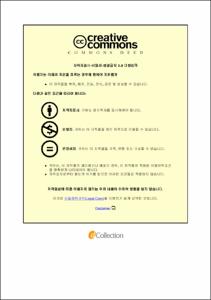주거요소가 유권자의 투표행태에 미치는 영향
- Abstract
- 본 연구는 한국 유권자들의 투표 행태에 아파트와 자가 거주라는 주거 요소가 어떤 영향을 미치는지 살펴보는 것을 목적으로 2016년부터 2018년까지 진행된 전국단위의 선거를 대상으로 집합단위의 분석을 진행하였다.
민주화 이후 영남과 호남을 중심으로 한 지역주의 성향의 투표행태는 한국 유권자의 투표행태를 설명하는 가장 주요한 요인이었다. 지역주의 성향의 투표행태가 여전히 강한 영향력을 발휘하고 있지만, 2000년대 이후 변화의 움직임이 엿보인다. 특히 세대 투표의 경우 16대 대통령 선거 이후 특히나 주목을 받았다. 이에 반해 계급·계층 투표는 한국의 투표 행태 연구에서 주목을 받지 못했다. 그러나 장기화된 경기침체와 양극화 등의 경제 이슈의 부상은 한국 유권자의 투표 행태가 계층 투표로 변화할 가능성을 보여준다. 특히 아파트나 자가 거주와 같은 주거 요소가 중산층으로서의 상징과 재산 증식 역할 등을 수행하였다는 점에서 계층 투표의 요인으로 작용할 가능성은 충분하다.
이러한 배경에서 본 연구는 인구주택총조사를 비롯한 통계 자료와 선거 결과를 통해 2016년부터 2018년까지의 전국단위 선거에 대한 분석 살펴보았다. 그 결과 한국의 선거에서 여전히 지역주의 성향의 투표행태가 강한영향을 보임을 확인할 수 있었으며, 세대 투표 역시 강한 영향을 보였다. 주거 요인의 경우 더불어민주당과 자유한국당 계열의 정당 간의 대칭적인 모습을 보이지는 않았으나, 자유한국당 계열의 득표에 일관적으로 긍정적인 영향을 미친 것을 확인하였다. 주거요인이 정치적 태도로 표출되고 있는 것이다. 특히 변수로 함께 사용된 경제적 변수와 함께 고려하였을 때, 한국 유권자에게서 계층투표의 가능성을 함께 엿볼 수 있었다.
다만 본 연구가 시행한 집합단위의 분석이 가진 생태적 오류의 가능성과 연구 범위로 설정된 2016년 ~ 2018년이라는 시간적 범위가 가진 정치적 과도기의 모습에 비추어볼 때 성급한 일반화는 지양되어야 할 것이며, 추가적인 논의가 이루어져야할 것으로 보인다.
This study conducted an analysis of collective units of national level elections held from 2016 to 2018 with the aim of examining the impact of Housing Factors on Korean voters’ voting behavior.
Since democratization, regional voting patterns centering on the Gyeongsang-do and Jeolla-do provinces have been the most important factor in explaining the voting behavior of Korean voters. Regional voting patterns still have a strong influence. but there is a movement of change since the 2000s. In particular, the generational voting has drawn particular attention since the 16th presidential election. On the other hand, class voting did not receive much attention in Korea's study of voting behavior. However, the protracted economic recession and economic issues such as polarization show the possibility that Korean voters' voting patterns may change into class voting. In particular, housing factors such as apartments and owner-occupied dwellings have served as symbols of middle-class people and property growth. Therefore, the housing factor is likely to act as a factor in class voting.
This backdrop, this study looked at the analysis of national unit elections from 2016 to 2018 based on census data and election results. As a result, we were able to confirm that the Regional voting patterns were still strong in Korea's elections, and that the generation vote also had a strong influence. And housing factors did not show any symmetry between the Democratic Party and the Liberty Korea Party. But they confirmed that they had a consistent positive effect on the voting of the Liberty Korea Party. Housing factors are being expressed in a political way. Especially when considered with economic variables used together as variables, the possibility of a class voting was seen from Korean voters.
However, the present study has the potential for ecological errors in the analysis of the collective unit. In addition, the time span of 2016 to 2018 which was set as the scope of the study was a political transition period. Therefore, hasty generalization should be avoided and more discussion is needed.
- Issued Date
- 2019
- Awarded Date
- 2019. 2
- Type
- Dissertation
- Publisher
- 부경대학교
- Affiliation
- 부경대학교 대학원
- Department
- 대학원 정치외교학과
- Advisor
- 차재권
- Table Of Contents
- 1. 서론 1
1.1. 연구배경 1
1.2. 연구범위 및 방법 5
2. 투표 행태의 이론적 논의 8
2.1. 정치사회학적 접근 8
2.2. 한국의 투표 행태 연구 9
3. 아파트의 정치학적 의미 23
3.1. 아파트와 한국 사회 23
3.2. 아파트와 정치학 27
4. 연구 가설과 모형 구축 및 데이터 34
4.1. 집합 단위 연구의 비교 34
4.2. 변수의 조작화 36
4.3. 연구 가설 및 모형 39
4.4. 전국 단위 모형 기술 통계량 42
4.5. 영·호남 제외 모형 기술 통계량 51
4.6. 소결 58
5. 결과 분석 62
5.1. 20대 총선 62
5.2. 19대 대선 67
5.3. 7회 지선 72
5.4. 소결 77
6. 결론 81
참고문헌 84
Abstract 92
- Degree
- Master
- Files in This Item:
-
-
Download
 주거요소가 유권자의 투표행태에 미치는 영향.pdf
기타 데이터 / 635.57 kB / Adobe PDF
주거요소가 유권자의 투표행태에 미치는 영향.pdf
기타 데이터 / 635.57 kB / Adobe PDF
-
Items in Repository are protected by copyright, with all rights reserved, unless otherwise indicated.